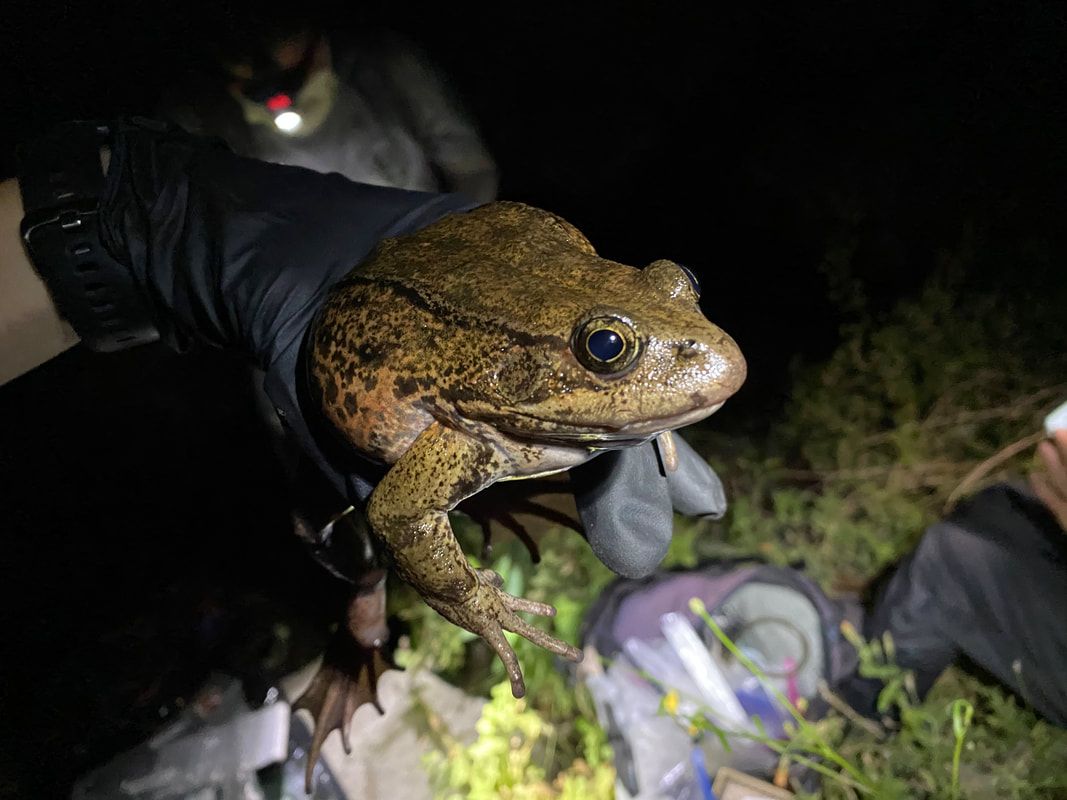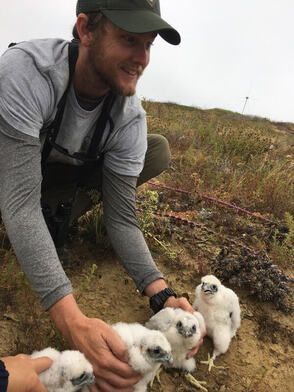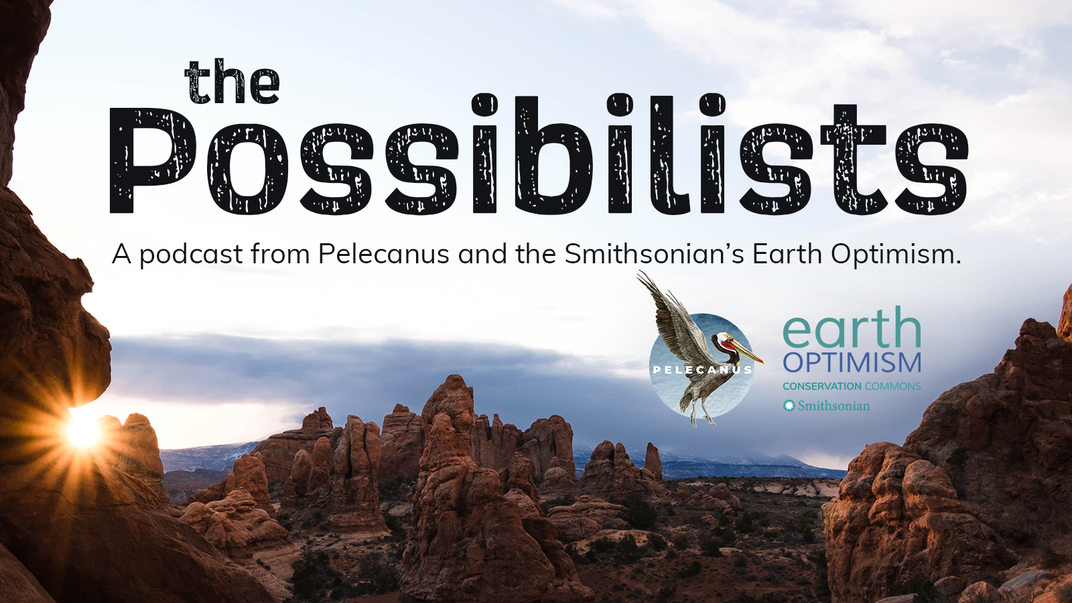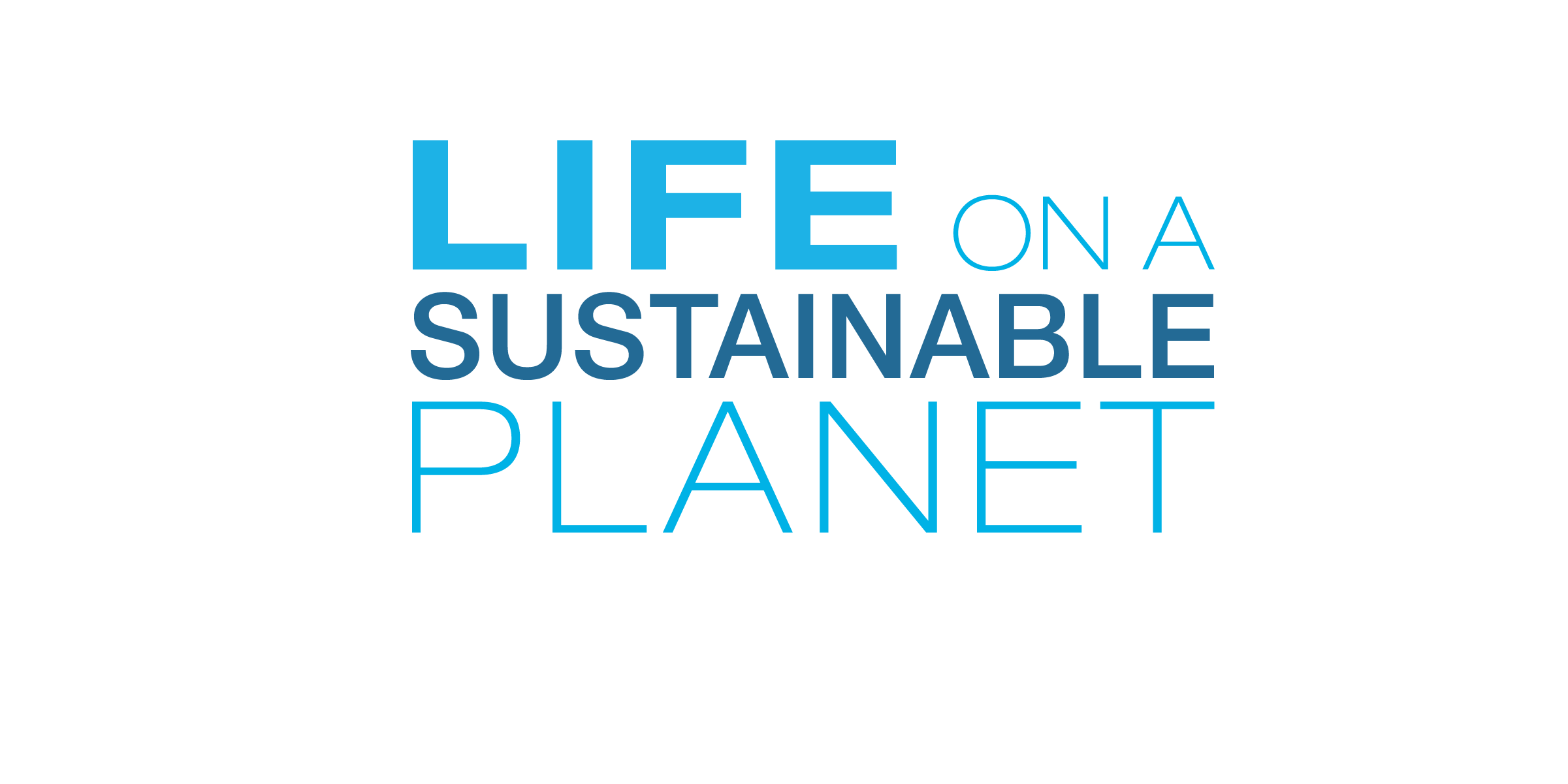A Different Kind of Podcast: The Possibilists From Pelecanus and Earth Optimism
Earth Optimism has partnered with Pelecanus on a podcast that highlights stories from interdisciplinary facets of the conservation community on the idea of possibilism. Here, Taylor Parker, who protects and restores habitats as a conservation social scientist and co-founder of Pelecanus, introduces his organization and the creation of The Possibilists.
:focal(1831x1221:1832x1222)/https://tf-cmsv2-smithsonianmag-media.s3.amazonaws.com/filer_public/7e/4d/7e4d1207-ec65-40c3-9ce6-90f213b44a45/joel-mott-oibyhxczyik-unsplash.jpg)
“Everyone I know is trying to save the world.” Imagine a tribe of people who may not believe exactly the same thing, wear the same clothes, or even live remotely near each other, but are united by this sense of contribution. This tribe exists, and they are environmentalists and conservationists. They might teach a course at a local university, wear a flat hat at a national park, or spend their waking hours knee-deep in mud looking at plants. Or maybe they advocate tirelessly for the protection of an insect that the rest of us haven’t even heard of, dedicating their careers toward saving something small.
The above quote is from Dr. Katy Delaney, an endangered frog conservationist for the National Park Service in Los Angeles. My brother, Austin, and I interviewed Dr. Delaney early in 2021 for the podcast he created back in 2015, called Pelecanus. In the podcast, Dr. DeLaney tells a rollercoaster of a story about the California red-legged frog (Rana draytonii). These frogs almost blinked out of existence, were brought back through gargantuan struggles across California, almost blinked out again with the devastating Woolsey Fire of 2018 when almost everything burned, then somehow the frogs survived the inferno only to be hampered by the ensuing mudslides filling the critical watering holes.
We want to make sure people know that conservation works
There’s no happy ending to the story because there’s no ending yet, and that, in a way, is the happy ending. Extinction is forever. Those frogs are barely hanging on, but they’re there. And the fact that they’re there is because Dr. Delaney and her team are working tirelessly to show that there is a chance. That’s the story we’re trying to tell: People everywhere, every day, are trying to save the world.

Pelecanus is our attempt to tell the stories of these conservationists around the world. As conservation professionals, we realized that the amazing stuff we were experiencing every day was often overlooked because of the primetime doom and gloom environmental stories. Austin named the podcast after the California brown pelican (Pelecanus occidentalis californicus) – a species of bird that was near extinct in the 1970s but taken off the Endangered Species List in 2009. Early in our careers, this kind of story was important for shaping how we would become conservationists. Starting out in our profession, we didn’t come from a world where we saw our childhood nature despoiled by concrete or our favorite tree to climb cut down for another strip mall: we already had the concrete and strip malls around us. We grew up in a world where people were fighting to protect wetlands, where people named Butterfly were climbing up trees to live in them, where the Crocodile Hunter and Jeff Corwin were showing us rare species, and where pelicans could be taken off the Endangered Species List because thousands of mysterious and anonymous people worked for decades to protect it. Those are the stories we want to make sure people remember when they hear the very real and very scary doom and gloom stories. We want to make sure people know that conservation works.
As an endangered species biologist, Austin has a career in conservation that spans over a decade in Jamaica, Chile, Costa Rica, and southern California. He works with passionate and highly educated biologists, determined environmental scientists, and even volunteers who choose to offer up their time on the weekends or after work to contribute toward a common goal of helping the planet. This lived experience of seeing hope and perseverance contrasts against the predominant doom and gloom stories. So Austin decided to tell different stories: the stories of people who work every day to save the world, or even just their little piece of the world.

The Smithsonian Conservation Commons is also trying to save the world. The Possibilists is the name of the series we built with their initiative founded on changing the conservation conversation, Earth Optimism. We’re trying to show a different environmental perspective. Michael Soule´, the late conservation biologist, was once asked if he is optimistic or pessimistic about the future of our environment. He responded that he is “possibilistic.” We want to be possibilistic too, and together we’re trying to explore what that means with Earth Optimism and the remarkable people we bring to the podcast.
The Possibilists is trying to discover a new world where our human compassion can meet with our capacities of living justly and sustainably together. As we talk to conservationists and explore Possibilism as a concept, we hope you will join us in the dialogue and help us understand this idea together.

